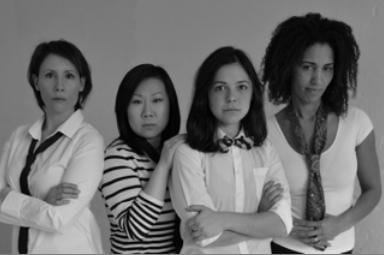Among Canadian history’s most quotable quotes is Pierre Trudeau’s assertion that “the state has no place in the bedrooms of the nation.” This idea birthed Parliament’s 1969 omnibus bill decriminalizing homosexual acts. As well as giving sodomy the thumbs up, it legalized birth control, restricted firearms sales and made drunk driving a crime (yes, it was legal until then).
Often forgotten is that the bill also represented a de facto rollback of women’s reproductive rights, the strange contradiction explored in Darrah Teitel’s The Omnibus Bill. Although therapeutic abortions had been available since 1953, the bill meant the process became dramatically more complex.
“Until then a woman just needed a doctor to deem it necessary in order to qualify for the procedure,” says the Ottawa-based playwright. “But this bill meant she had to stand before a committee of three doctors and convince them her life was in danger. An upper-middle class woman living in Toronto could probably find a doctor who would secretly help her, but in other places it was a completely different game.”
Mixing parliamentary transcripts with a fictionalized narrative, the piece explores the legislation’s real-world implications. In an interesting, though by no means accidental, twist all the roles are performed by women, a nod to the problem of bringing men into the discussion.
“As long as I’ve been participating in this dialogue I kept thinking that women’s reproductive rights are not an issue men should be weighing in on,” Teitel says. “One of the most disturbing things about the anti-choice movement is that it’s made up largely of men. There’s a certain thrill factor for them in talking about women’s bodies in this very fucked-up, fetishistic kind of way.”
Teitel was literally born into feminist activism; her mother was a renegade midwife in the early 1970s before it was a regulated practice, working in female self-help and DIY gynecology networks. Though much of her adult efforts focused on globalization politics (ask her and she’ll proudly recount hurling tear gas canisters with Naomi Klein), she found herself forced into the cause of reproductive freedom while attending Montreal’s National Theatre School.
Anti-choice advocates were appearing on university campuses across the city, parading bloody images along with literature comparing reproductive rights to the Holocaust.
“They try to equate post-abortive women and doctors who perform the procedure with perpetrators of genocide,” she says. “Until 1969 the leading cause of death among women under 30 was botched abortions. Equating a lifesaving medical procedure with attempts at racial extermination is profoundly fucked up. Women should rightly feel unsafe when this discourse comes into the public sphere.”
Though many on the left are tempted to dismiss such folks as radicals with a hopeless cause, Teitel stresses caution is needed. And she’s one who would know. As a staffer at the NDP’s Status of Women Committee, she gets the inside scoop on Ottawa’s backroom politics, including in camera meetings closed to journalists and the public. Ethics rules forbid her to talk specifics. But she stresses that while the Conservatives have stated they have no plans to reopen the debate, limiting reproductive rights can happen in more subtle ways.
“We cannot take it for granted that abortion will remain available if we continue to have Conservative majorities,” she says. “Rather than ban it outright they look for ways to make it increasingly inaccessible. People need to be shaken out of their complacency and realize this is still a political fight in our county. It makes me so mad I even have to be talking about it. But that’s the reality we’re faced with.”
The Deets:
The Omnibus Bill
Rhubarb Festival
Wed, Feb 15-Sun, Feb 19, 9pm
Buddies in Bad Times Theatre
12 Alexander St
buddiesinbadtimes.com


 Why you can trust Xtra
Why you can trust Xtra


